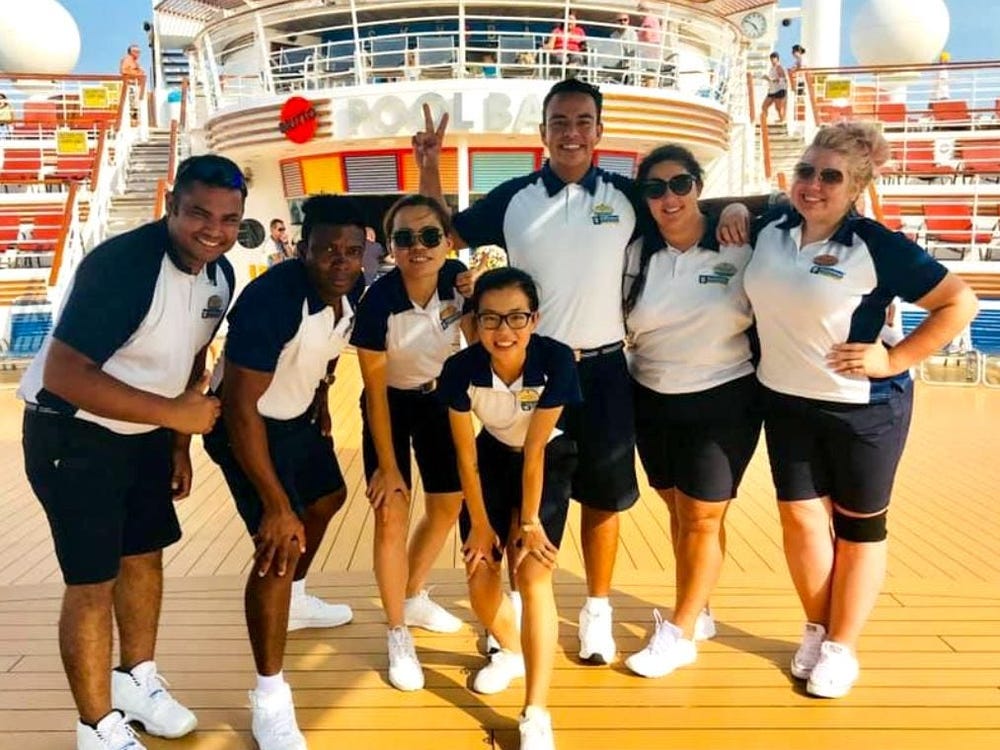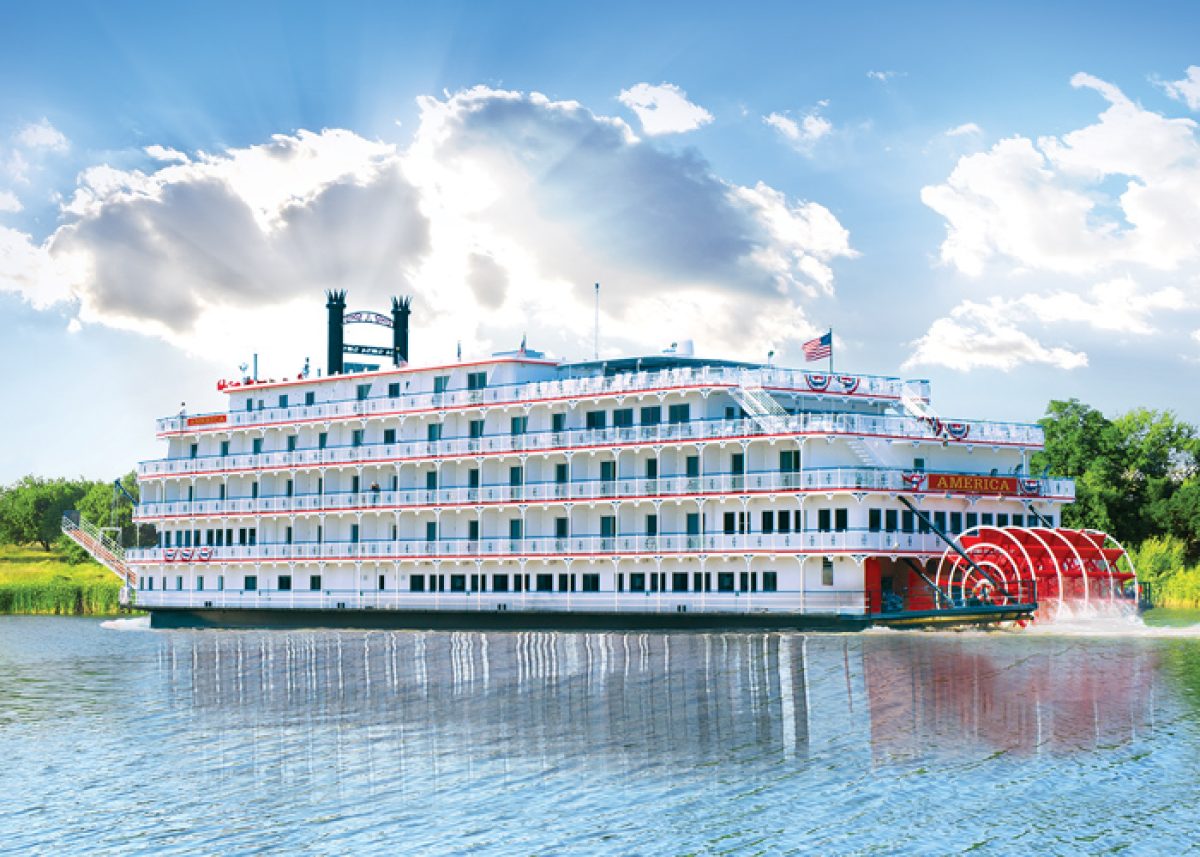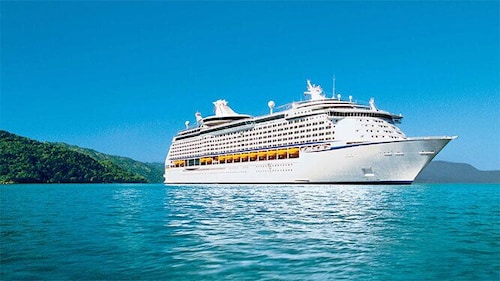
USPH training is a course which will help you get certified in food hygiene. It offers both practical as well as theoretical training. This course is open to all service and hotel personnel. Each class will have a maximum of 24 students and a minimum of 12. A Certificate of Completion will be issued to you upon successful completion of your course.
Crew Steward
Crew stewards have many duties. They must serve passengers and ensure that mess and dining areas remain safe and clean. They must also attend regular USPH training and attend meetings with the housekeeping manager. They must be friendly and service-minded. They should be able and willing to work with others in a team.
The role of the ship's steward department is varied. It may be part of a larger cruise ship or small fishing vessel. This job is usually unlicensed. However many ships require special training in culinary skills. The salary for a steward is approximately $32,637 per year.
Provision Master
The Provision Master reports directly the F&B Director and is responsible to oversee the Provisions team. His responsibilities include maintaining an orderly and professional operation, inventory control, and regularly recommending corrective measures. The job description can vary depending on where you are located, but will require an in-depth knowledge of USPH standards, as well as good management practices.

They are responsible for monitoring inventory levels and documenting transactions. They will also be responsible for overseeing issues related to aging or spoilage and reconciling them with the inventory management system. The position requires an education in food service but previous restaurant management experience is necessary. Students must have at least three years' experience in a restaurant to be eligible for this position.
Pastry chef
In a hospitality establishment, pastry chefs are responsible for many responsibilities. They must prepare meals and desserts and ensure proper sanitation. They must also prepare daily electronic requests and maintain all equipment or supplies for their staff.
Pastry chefs must have an in-depth knowledge of food safety. In addition, they must be able to perform daily USPH inspections of all F&B areas on a ship. They typically have at most five years experience working in high-volume restaurants and cruise ships.
Pastry chef on Astro Cruises
You'll have the chance to create delicious desserts as a pastry chef aboard a luxury cruise. You'll also be responsible for the preparation of all food items onboard. Pastry chefs must adhere to all safety and environmental guidelines.
Astro Cruises will offer a training course if your goal is to become a professional in this field. This course will provide you with a series workshops and classes on how to be a pastry chef. You'll have the opportunity to learn everything from pastry basics to advanced techniques. This will enable you to become a pastry chef on a cruise.

Crew Steward responsibilities
You have many responsibilities as a crew steward. You have to maintain good morale and teamwork aboard the ship. It is important to be friendly to your crew members, understand their work requirements and be available to any request. As a USPH stand-by, you will need to assist with loading, provisioning, and other duties. Safety regulations and training are essential.
Crew stewards are responsible to maintain the cleanliness of the galleys, and passenger areas. This includes cleaning toilets and sinks in guest cabins, maintaining the cleanliness of locker rooms and bathrooms, and ensuring the cleanliness of the ship. You will also be expected to wear personal protective equipment, such as a safety helmet. You'll need to maintain a clean working area and notify the cabin steward of any maintenance issues. Assisting new crew members during training is another possible responsibility.
FAQ
Is a cruise good vacation?
The best vacations are when you don't have to think about anything but relaxing and enjoying yourself. A cruise is the perfect vacation!
What do you get when you cruise?
It is important to have fun. You don't need to go overboard - just enjoy yourself.
You'll find plenty of activities for everyone to participate in. Even if you're feeling bored, you can always find someone to talk with.
Cruising is about having fun and relaxing. It isn't about seeing everything.
You can choose from short cruises around Europe or longer trips across the Pacific. The duration of the trip is determined by what you wish to accomplish during your vacation.
These are the 4 factors that determine the cruise's cost.
The main factors that affect the cost of a cruise are how long you'd like to stay on board, whether an all-inclusive package is preferred, how many people will be traveling with you, and which type of cabin you book.
Statistics
- If you're traveling alone, you may also need to factor in a single supplement, adding up to as much as 100% of the cruise fare. (travel.usnews.com)
- In addition, 10 to 15 percent gratuity is typically added to bar bills — for alcohol and soft drinks — and gratuities are applied to spa treatments. (cruiseline.com)
- You can save 15% off the total price if you book in advance of your trip. (travel.usnews.com)
- The line estimates savings of 50% when you purchase this bundle. (travel.usnews.com)
External Links
How To
How to stay safe when on a Cruise Ship
You need to know a lot before you set sail on your cruise. You must understand how to behave when onboard so you don't get into trouble. These safety tips will make your trip more enjoyable.
-
Be mindful of where you are at all times. People are more likely to be together when they're eating on a cruise ship than anywhere else. Because you are surrounded with people who want to talk and eat, it is easy to get distracted from your tasks. This shouldn't distract you from the work you are supposed to do. You should tell someone to stop doing something that is dangerous like smoking or drinking alcohol.
-
Always keep your room key close to you when you board the ship, and hand over your room key to the person checking you in. You will be able to tell them where you are if they need you. Also, make sure to have your passport.
-
Your valuables should be kept out of reach. Most cabins include drawers under the beds. You can store important documents such as passports and credit cards. Also, make sure nothing valuable is visible in plain view. Your bags should be kept in the closet, so that no one can see them.
-
Keep hydrated. Cruise ships provide plenty of water, but sometimes it's hard to remember to drink enough. You can take advantage of the complimentary bottled water onboard. Keep yourself hydrated. Dehydration makes you tired and cranky, leading to fights or accidents.
-
Be attentive to all announcements. Announcements are posted everywhere, including on TV screens and public address systems. They include safety procedures, emergency exits, and even weather reports. These announcements need to be taken seriously. These announcements could save your life.
-
You should lock your door before you leave your cabin. No matter how kind a crew member might seem, your cabin should be locked. Unlocked doors are often used by thieves to gain entry. A crew member can grant permission to use the restroom.
-
Avoid going too far. It can take some time for the ship's crew and you to be rescued from the water. In the meantime, sharks and other sea creatures may be attracted to your body. The best thing to do is wait until help arrives.
-
Smoking is not permitted in elevators. These elevators have high pressure, so smoke can build-up quickly. If you feel dizzy and lightheaded, it is best to get out immediately. The fresh air outside doesn't necessarily mean you can breathe easily.
-
Know the evacuation procedure. Each year, thousands of people die after being trapped in elevators. Follow the screen instructions in case of an emergency.
-
Make sure you are familiar with the fire drill. Fire drills take place regularly, almost every day. Everyone on deck must evacuate during a drill. Follow the instructions given by crew members. After the drill is completed, return to your cabin and lock it.
-
Before accepting food or drinks, ask questions. Cruisers can get food poisoning. It is common for people to not realize that certain foods can't be eaten onboard ships. Most cruise ships prohibit raw oysters. If you aren't sure if the food being offered to you is safe, politely decline and choose another meal.
-
Take care when you use the pool. There have been many cases of passengers falling into the pools accidentally. It is possible to slip and fall into the pool without being noticed. It is also possible to slip on the ground. So always wear proper footwear and pay attention to your surroundings.